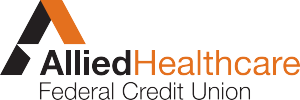
How To Improve Your Financial Health With A Budget That Works
By the second half of the month, have you ever wondered where your money went? If you answer “yes”, you’re not alone. A Gallup poll found only about 1/3 of Americans (32%) maintain a household budget. Managing a budget can help ensure that you have money at the end of the month, which can help you feel better about your financial life. In fact, one of the most powerful things you can do to improve your financial health and relieve financial stress is to take a step back and create a plan with a budget.
Take the first step
It’s important to understand your current financial situation and evaluate your goals so that you can have a clear picture of the total money that you have to work with, your financial commitments, and any money that you may have leftover to devote to your goals. This financial worksheet can help you get started.
- What do you want to accomplish? Write down any short and long-term goals that you may have concerning your finances, including timeframes.
- How much do you have to work with? Write down your total monthly take-home income (after tax) for yourself and if you’re a couple, for your significant other.
- How much is already committed?
Write down a list of all your committed expenses over the course of a month. This includes a mortgage payment or rent, car payments, auto insurance, groceries, utilities, credit card and other loan payments, etc. - How much money do you have left for your goals? After you subtract your total committed expenses from your income, you’ll know the amount that you can apply toward your short and long-term goals (saving money for a vacation, putting money in savings and retirement, etc.)
- Review your goals and track your expenses each month. Creating a spreadsheet of your finances can help you keep track of unnecessary spending. This will immediately help you sort out what you need vs. what you want.
You CAN Do It
Remember, nothing is set in stone. You’re in charge of your plan and your goals! It’s always a good idea to pay off debt and to make savings a priority. You can always adjust your goals and timelines along the way.
Budget Not Balancing? There’s Help Available
If your income is less than your commitments, don’t panic. It’s going to be ok. Your budget can help you find places to save money and trim expenses. There are debt relief options that can help alleviate stress and improve your financial health. In addition, if you want to speak with someone, AHFCU’S partner, GreenPath Financial Wellness, offers free debt and credit counseling. For people who need it, a Debt Management Plan can lower your interest rates and fees, and help you save money and pay off your debt faster.
Please feel free to speak with a credit union representative at one of AHFCU’s branches or call 562-933-0370 for more financial advice and information on ways you can save money. Your credit union, AHFCU, is always here to support you. We’re committed to providing you with financial healthcare for life.



